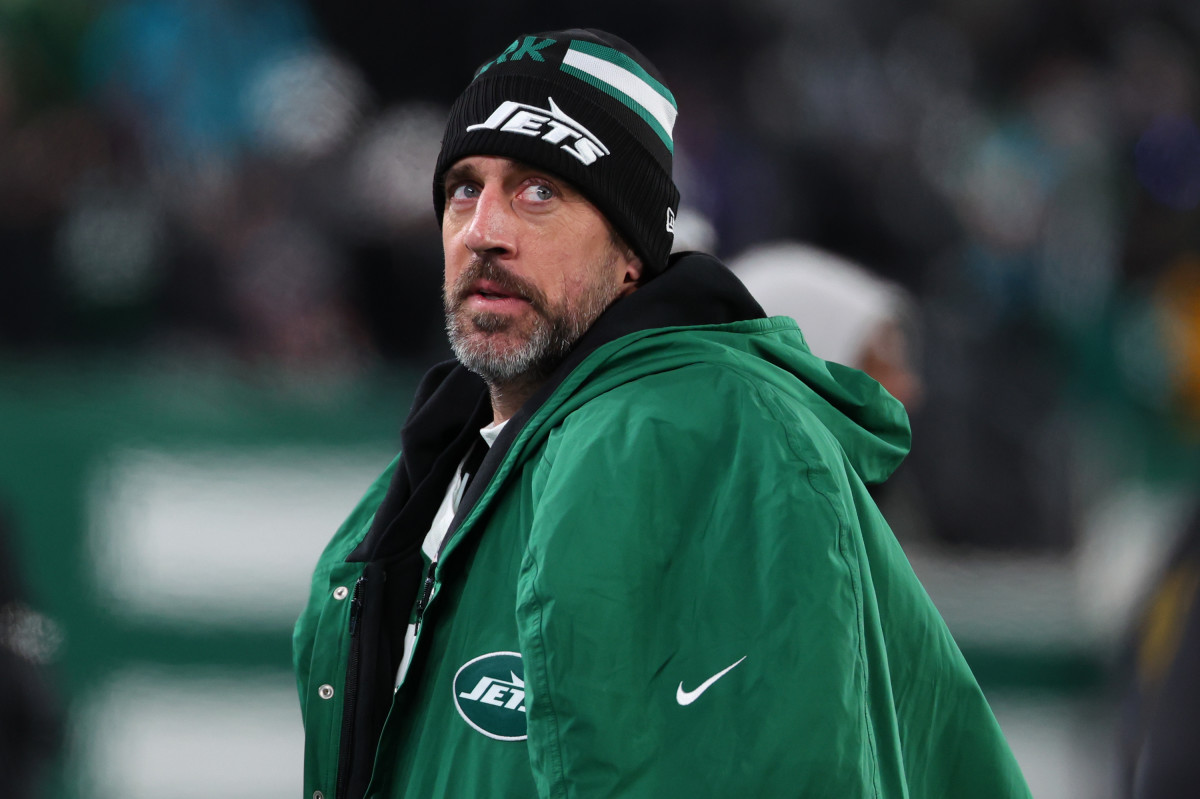Aaron Rodgers, known for his sharp football mind and iconic career with the Green Bay Packers, made a bold and unexpected promise to Dan Campbell, the head coach of the Detroit Lions. According to sources close to the two, Rodgers approached Campbell with a proposal: if the Lions agreed to bring him on board, he would not only help them reach the Super Bowl but also take charge of the game strategy. Rodgers, whose experience and leadership have been key to his success in the NFL, offered to use his football IQ to elevate the Lions to the next level, turning the team into legitimate Super Bowl contenders. This unexpected offer caught Campbell off guard but intrigued him, given the Lions’ rebuilding phase and the urgency to improve their fortunes.

Rodgers, however, was not simply asking for a position or a paycheck. He wanted full control over the game strategy. This was a unique request, one that suggested a level of trust and respect in Campbell’s vision for the team, but with the caveat that Rodgers would be in the driver’s seat when it came to how the team approached each game. His track record of offensive success, particularly his ability to read defenses and make quick decisions on the field, was likely a key factor in his confidence that he could transform the Lions’ offense. For Campbell, who had been emphasizing a tough, physical brand of football, Rodgers’ proposal presented both an opportunity and a challenge—one that would require a shift in mindset and perhaps a bit of a gamble.
The prospect of adding Rodgers to the mix brought immediate intrigue to the Lions’ fanbase. Detroit had long been in search of a franchise quarterback who could lead them to the promise land, and Rodgers’ legendary career had made him an attractive target for any team looking to contend for a championship. However, integrating someone as dominant as Rodgers into a team that was still finding its identity would require a careful balance. It wasn’t just about the physical talent Rodgers would bring; his influence over the strategic side of the game could completely change the dynamic in the locker room and on the field. Campbell would have to weigh the pros and cons carefully, ensuring that the transition wouldn’t disrupt the team’s cohesion and culture.
Rodgers’ promise was not just about the Lions’ immediate future—it was about shifting the balance of power in the NFC. If the Lions, with Rodgers at the helm of their strategy, could execute flawlessly, they would not only become a powerhouse in their division but potentially an unstoppable force in the league. Rodgers had spent much of his career outwitting defensive coordinators and leading a Packers team that had become a perennial Super Bowl contender. With the Lions sitting on the cusp of something big, this bold proposition raised the stakes for the team, Campbell, and the entire NFL. The thought of Rodgers orchestrating the team’s game plans gave fans a taste of what could be, though the road to the Super Bowl would likely still come with its share of hurdles.

As for Rodgers, his motivations seemed clear: he was seeking a new challenge, one that would test his football intellect in new ways. His offer to take charge of the game strategy was perhaps a signal that he was ready to move beyond the traditional role of quarterback and prove his ability to lead a team to glory in a way few could have imagined. If this unconventional partnership were to come to fruition, the Lions’ trajectory would be forever altered, potentially ushering in a new era for the team—and for Rodgers’ already legendary career. Whether Campbell would accept Rodgers’ terms remained to be seen, but the mere thought of such a collaboration had the NFL world buzzing.